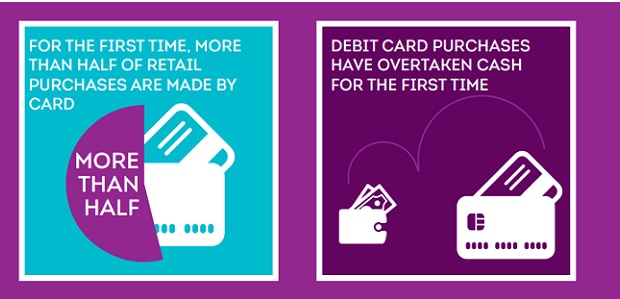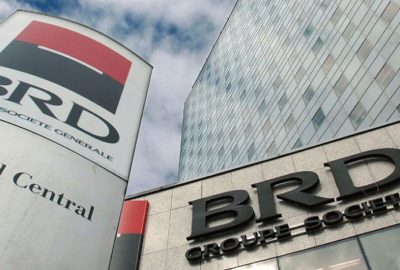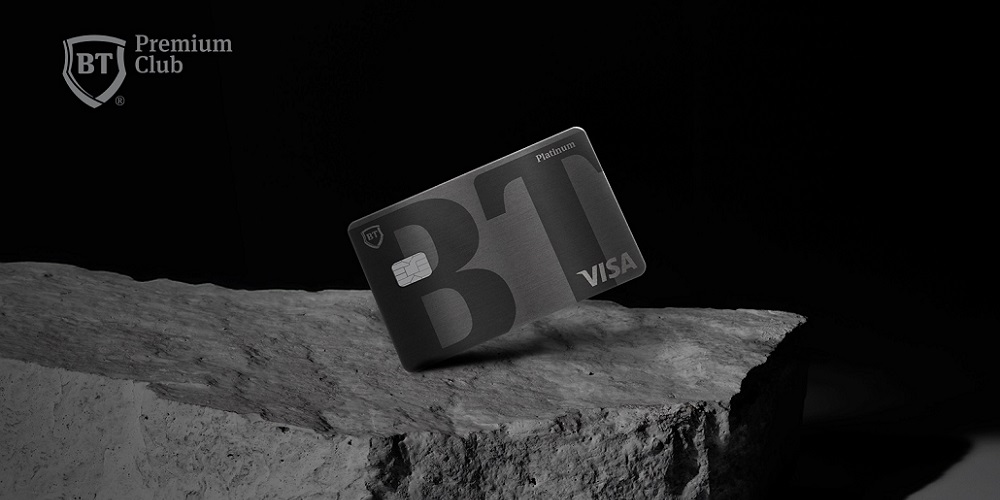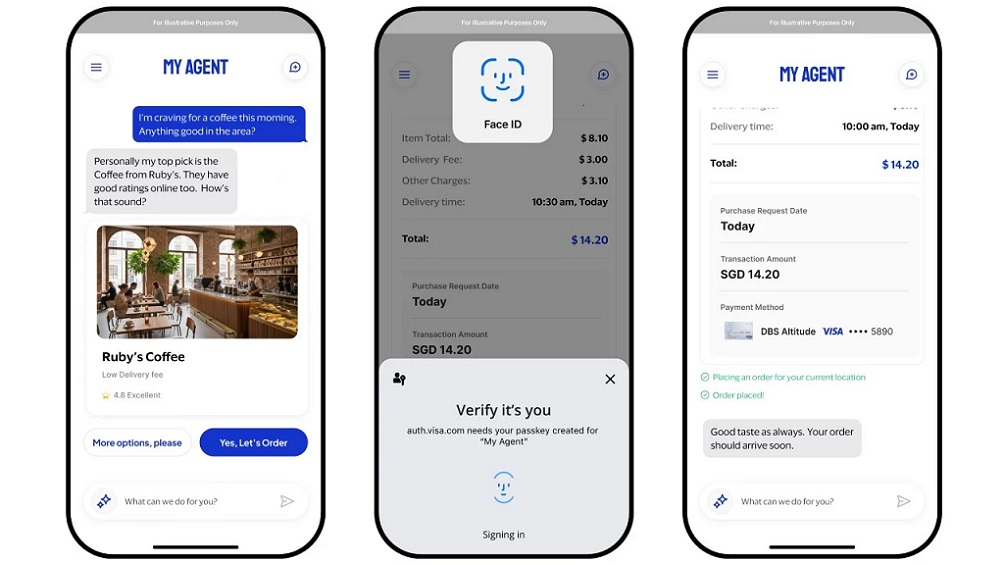Debit cards overtake cash to become number one payment method in the UK

The British Retail Consortium’s (BRC) annual Payments Survey reveals that cards accounted for more than 50 per cent of all retail transactions by volume.
For the first time the volume of retail purchases made by card now accounts for more than half of all customer transactions, according to the BRC’s latest annual Payments Survey, released today. This has partly been driven by UK customers increasingly using cards for lower value payments.
Cards have become the dominant payment method as retailers’ investment in payment technology has facilitated greater customer choice over how they pay for their goods both in store and online.
The survey also reveals:
New regulations have helped deliver savings for retailers. Investment in payments has been boosted by savings of around £500 million for retailers and their customers from the EU Interchange Fee Regulation (IFR), introduced following a successful campaign by the BRC, which caps some of the fees for handling credit and debit card transactions.
The burden on businesses is still high. Despite these savings from the IFR, retailers still spent over £1 billion last year to accept payments from customers and the cost of processing cards remains high, particularly for credit cards.
Retail customers are less reliant on credit. Retail spending on credit cards has fallen and represents a diminished share of retail purchases by value. This shows consumers borrowing less for day-to-day purchases, in contrast to wider growth in unsecured consumer lending in the UK.
Commenting on the Survey’s findings, BRC Policy Advisor- Payments and Consumer Credit Andrew Cregan, said:
„A growing number of retailers have invested in payment technology to accept cards, contactless payments and new payment applications both online and in store. In part, this has been facilitated by the Interchange Fee Regulation (IFR), which was introduced across the European Union following a successful campaign by the BRC and has led to a significant fall in the cost of collection that benefits retailers and their customers. Looking ahead, the Government should act to retain the benefits of the IFR for retailers and their customers after the UK leaves the EU and introduce further regulatory action to address the alarming increase in other card fees and charges at a time when the retail industry is facing acute cost pressures elsewhere.”
The BRC Payments Survey data is a sample from 50 per cent of the entire retail industry.
. Total UK retail sales rose by 3.5 per cent in 2016 to £351 billion (2015: c.£339 billion)
. There were 19 billion retail transactions overall in 2016 (2015: c.18.2 billion)
. The average transactional values (ATV) of any given retail transaction stood at £18.42 in 2016 (2015: £18.63)
Source: British Retail Consortium
Dariusz Mazurkiewicz – CEO at BLIK Polish Payment Standard
Banking 4.0 – „how was the experience for you”
„To be honest I think that Sinaia, your conference, is much better then Davos.”
Many more interesting quotes in the video below:









